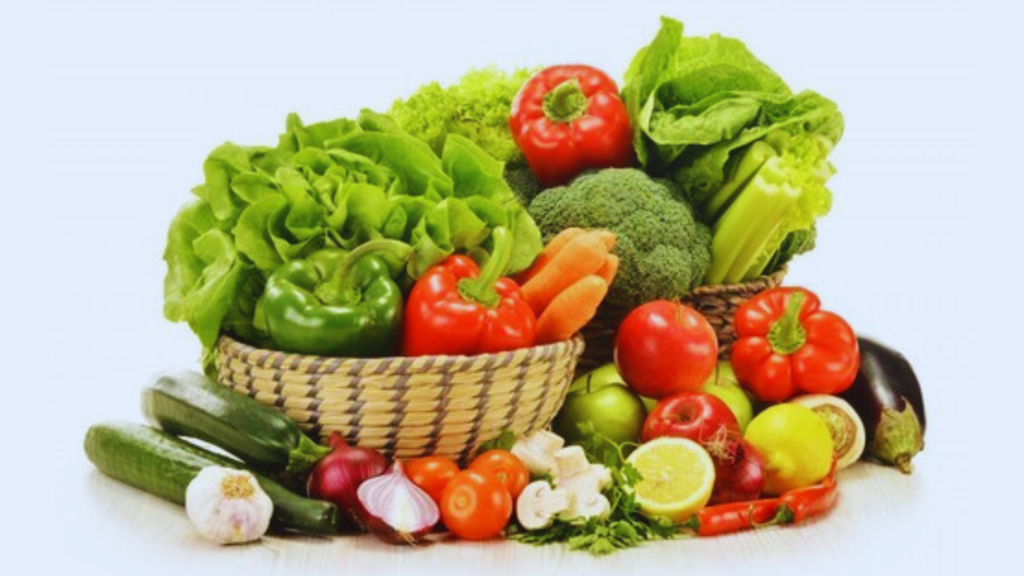Vegan dog food has emerged as a popular topic among pet owners who are looking for ethical, environmentally friendly, and potentially healthful alternatives to conventional meat-based diets.
While dogs are naturally omnivorous and can thrive on a variety of food sources, a well-planned vegan diet requires careful consideration to ensure that your furry friend receives all the essential nutrients for a happy, healthy life.
I will explore the concept of vegan dog food, its benefits, nutritional aspects, challenges, and practical tips for transitioning your pet to a plant-based diet.
For insights on whether Pomeranians should wear a collar, including considerations for safety and alternatives, check out this informative article.
Blog Highlights
ToggleThe Rise of Vegan Dog Food
In recent years, the shift toward plant-based diets has gained significant momentum—not only among humans but also within the realm of pet nutrition. Vegan dog food is rooted in ethical and environmental concerns, as well as in the desire to avoid potential allergens and digestive issues linked to animal proteins.
Proponents of vegan diets for dogs emphasize that a carefully balanced, plant-based meal plan can support healthy digestion, reduce inflammation, and even improve skin and coat conditions.

Vegan dog food is not simply about eliminating meat; it’s about creating a balanced diet that includes proteins, carbohydrates, fats, vitamins, and minerals, all sourced from plants.
Pet owners who choose this path often report that they have greater control over ingredient quality, avoiding additives, preservatives, and hormones commonly found in some commercial meat-based dog foods.
What Exactly is Vegan Dog Food?
Vegan dog food consists exclusively of plant-based ingredients. Unlike vegetarian dog food, which might still include animal by-products like dairy or eggs, vegan dog food omits all animal-derived ingredients. This means that everything from the protein source to the fats and vitamins must come from plants. Common ingredients include legumes, whole grains, vegetables, fruits, and healthy oils.
For instance, high-quality protein in vegan dog food often comes from lentils, chickpeas, quinoa, or tofu. Carbohydrates are typically provided by grains such as brown rice or oats, while vegetables like sweet potatoes, carrots, and leafy greens add fiber, vitamins, and antioxidants.

Essential fats can be sourced from flaxseed oil or coconut oil, and certain nutrients that are scarce in a vegan diet—such as vitamin B12 or taurine—may require supplementation.
For a comprehensive guide on what kind of harness is best for a Pomeranian, including comfort and safety tips, check out this article.
Nutritional Considerations for a Balanced Vegan Diet
One of the biggest concerns among pet owners considering a vegan diet is whether it can be nutritionally complete. It is true that dogs have different nutritional needs compared to humans, and any diet—vegan or otherwise—must meet these requirements for protein, fats, carbohydrates, vitamins, and minerals.

Essential Nutrients and Their Sources
Below is a table summarizing key nutrients needed for dogs and potential plant-based sources:
| Nutrient | Plant-Based Sources | Role in Health |
| Protein | Lentils, chickpeas, quinoa, tofu, peas | Supports muscle growth, repair, and overall energy |
| Carbohydrates | Brown rice, oats, sweet potatoes, quinoa | Provides energy and aids in digestion |
| Fats | Flaxseed oil, coconut oil, algae oil | Essential for coat health, brain function, and energy |
| Vitamins | Leafy greens (spinach, kale), nutritional yeast, fortified plant milks | Critical for metabolic processes and immune function |
| Minerals | Broccoli, carrots, legumes, fortified foods | Supports bone health, nerve function, and more |
| Omega-3 Fatty Acids | Ground flaxseeds, chia seeds, algae oil | Important for skin, coat, and joint health |
Achieving the right balance of these nutrients is key to ensuring that a vegan diet is healthy for your dog. Some nutrients—such as vitamin B12, taurine, and certain amino acids—might be limited in a plant-based diet, so supplementation may be necessary.
Consulting with a veterinarian or a pet nutrition specialist is always recommended when making significant changes to your dog’s diet.
Benefits of Choosing Vegan Dog Food
Ethical and Environmental Benefits
One of the primary reasons pet owners consider vegan dog food is ethical. By eliminating animal products from your dog’s diet, you reduce the demand for animal farming, which is often associated with ethical concerns and environmental issues. A vegan diet has a lower carbon footprint compared to traditional meat-based dog food, making it an appealing option for those who are environmentally conscious.
Health and Allergen Management
Vegan dog food can also be beneficial for dogs with certain food allergies or sensitivities. Animal proteins are common allergens in dogs, and switching to a plant-based diet can sometimes alleviate symptoms such as skin irritations, digestive issues, or chronic ear infections. Moreover, the high fiber content in plant-based foods can improve digestion and promote overall gut health.
Freshness and Ingredient Control
When you prepare vegan dog food at home or choose high-quality commercial vegan options, you have better control over what goes into your dog’s meals. This means you can avoid fillers, artificial additives, and preservatives that are sometimes found in conventional dog food. Fresh, whole foods can provide more natural nutrients and antioxidants, which contribute to improved vitality and longevity.

Discover if the American Eskimo is a guard dog and learn about its suitability for protecting your home.
Challenges and Considerations in Vegan Dog Food
Despite the many benefits, there are challenges to consider when transitioning your dog to a vegan diet.
Nutritional Completeness
Ensuring that a vegan diet meets all of your dog’s nutritional needs can be challenging. Dogs require a specific balance of proteins, fats, carbohydrates, vitamins, and minerals. Missing or inadequate nutrients could lead to deficiencies, affecting energy levels, immune function, and overall health. For this reason, many pet nutritionists recommend that any vegan diet be formulated with the guidance of a veterinarian.
Digestive Adaptation
Dogs have digestive systems that are accustomed to processing animal proteins and fats. A sudden switch to a vegan diet can sometimes lead to gastrointestinal upset, including diarrhea or vomiting. It is crucial to transition slowly, mixing small amounts of vegan food with your dog’s current diet and gradually increasing the proportion over several weeks.
Supplementation Needs
Certain nutrients, such as vitamin B12, taurine, and some essential amino acids, are naturally more abundant in animal products. Vegan diets often require supplementation to ensure these nutrients are available in sufficient quantities. Using a balanced, dog-specific vegan supplement can help bridge any nutritional gaps, ensuring that your pet remains healthy and active.
Cost and Availability
While there are many high-quality vegan dog food options available, they can sometimes be more expensive or harder to find compared to traditional dog food.
If you choose to make vegan dog food at home, sourcing organic and fresh ingredients might also increase the overall cost. Weighing the benefits against these factors is an important part of the decision-making process.
Learn about the size collar for an American Eskimo to ensure a perfect fit and comfort for your dog.
Transitioning Your Dog to a Vegan Diet
If you decide that a vegan diet is the right choice for your dog, the transition process is critical to its success. Here are some key steps to consider:

- Consult Your Veterinarian:
Begin by discussing the plan with your vet. They can provide advice on supplements and monitor your dog’s health during the transition. - Gradual Transition:
Instead of switching overnight, mix small amounts of vegan food with your dog’s current diet. Increase the proportion gradually over a period of 10 to 14 days. This slow transition helps prevent digestive upset and gives your dog’s system time to adjust. - Monitor Health:
During the transition, closely observe your dog for any changes in energy levels, coat condition, stool consistency, or overall behavior. If you notice any adverse reactions, consult your vet immediately. - Consistency is Key:
Once your dog is fully transitioned, maintain a consistent diet. Abrupt changes can lead to digestive issues, so stick to the new diet and adjust only as necessary.
Below is a brief transition plan in table format for quick reference:
| Transition Phase | Current Diet | Vegan Diet | Duration |
| Phase 1: Initial | 100% current | 0% vegan | 3-4 days |
| Phase 2: Gradual Intro | 75% current | 25% vegan | 3-4 days |
| Phase 3: Midpoint | 50% current | 50% vegan | 3-4 days |
| Phase 4: Nearly There | 25% current | 75% vegan | 3-4 days |
| Phase 5: Full Switch | 0% current | 100% vegan | Then maintain |
The Future of Vegan Dog Food
As consumer demand grows and more pet owners seek ethical, sustainable food choices, the future of vegan dog food appears promising. Advances in nutritional research and pet food technology continue to refine formulations, ensuring that plant-based diets can meet all the dietary needs of dogs.
Many companies are now investing in research to develop supplements and fortified vegan dog foods that provide complete nutrition.
Innovation in this space is driven by both consumer interest and scientific progress. As more long-term studies are conducted, we are likely to see improved formulations that not only match but sometimes even surpass the benefits of traditional meat-based diets in certain aspects, such as digestibility and allergen control.
Weighing the Pros and Cons
To help you make an informed decision about whether a vegan diet is right for your dog, consider the following table that summarizes the benefits and challenges:
| Pros | Cons |
| Ethical and sustainable | Requires careful nutritional planning |
| Potential reduction in allergens | May need supplements for vitamin B12, taurine, etc. |
| Control over ingredient quality | Can be more expensive and time-consuming |
| Improved digestion for sensitive dogs | Transition period may cause temporary digestive upset |
| Innovative and customizable meal options | Limited commercial options in some regions |
Final Thoughts
Vegan dog food represents an intriguing option for pet owners seeking to align their dietary choices with ethical and environmental values while supporting their dog’s health. With the proper planning, a vegan diet can be nutritionally complete, offering benefits such as reduced allergens, improved digestion, and a lower environmental impact.
Discover why Afghan Hound collars are wide by exploring the unique characteristics of this breed and how wide collars enhance their comfort and style.
However, it is essential to approach this dietary change with caution, ensuring that all nutritional needs are met through a balanced blend of whole foods and necessary supplements.
By taking the time to research and carefully transition your dog to a vegan diet, you can help ensure that your pet not only survives but thrives on a plant-based meal plan. Continuous monitoring, regular veterinary check-ups, and an openness to adjust the diet as needed are key elements of success.





